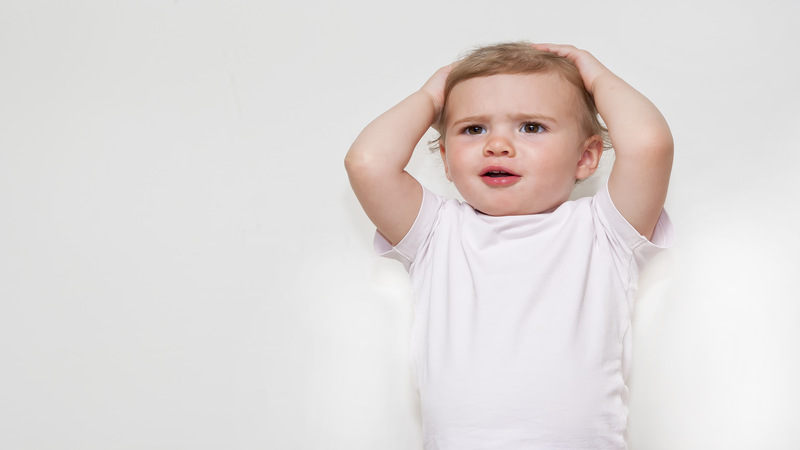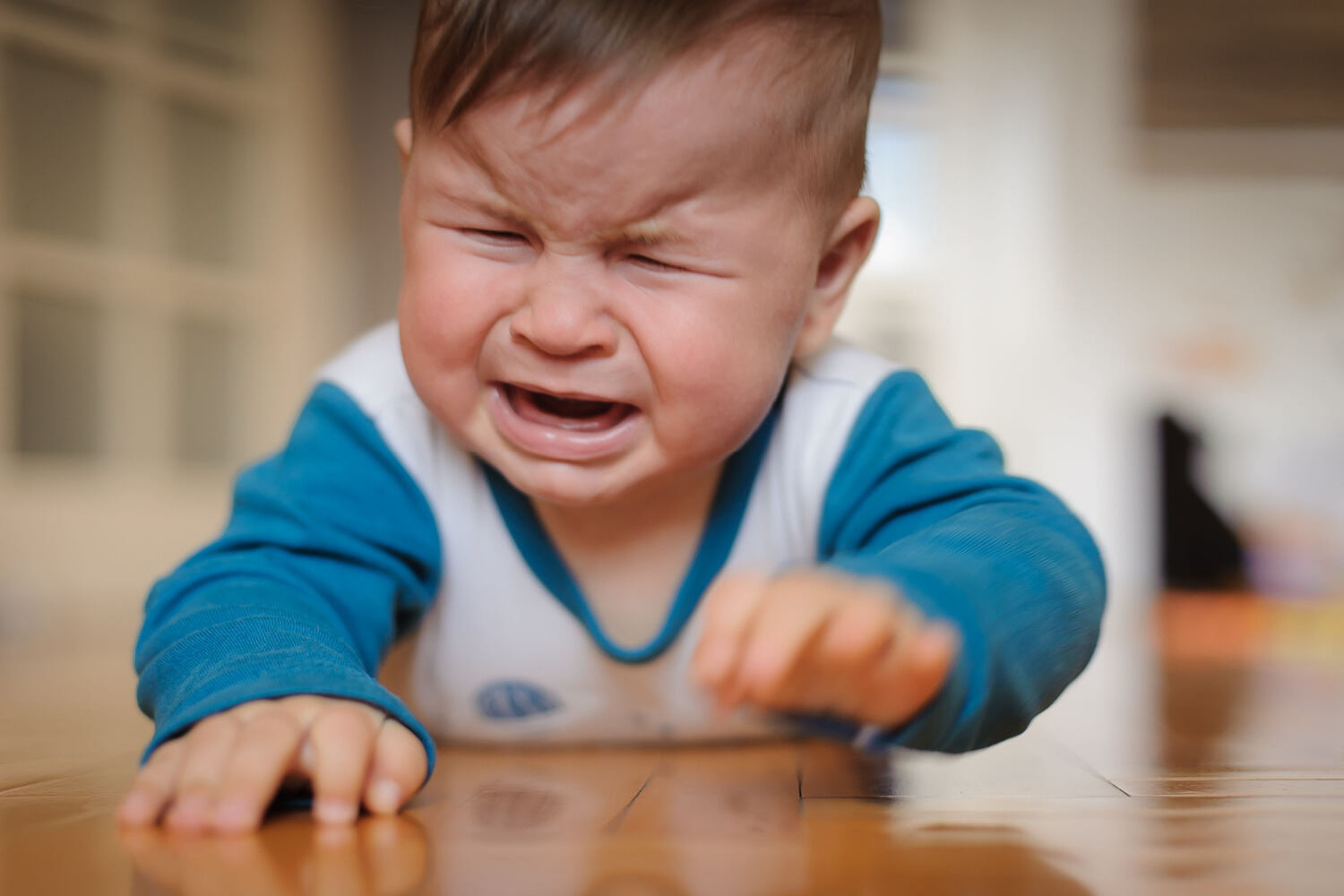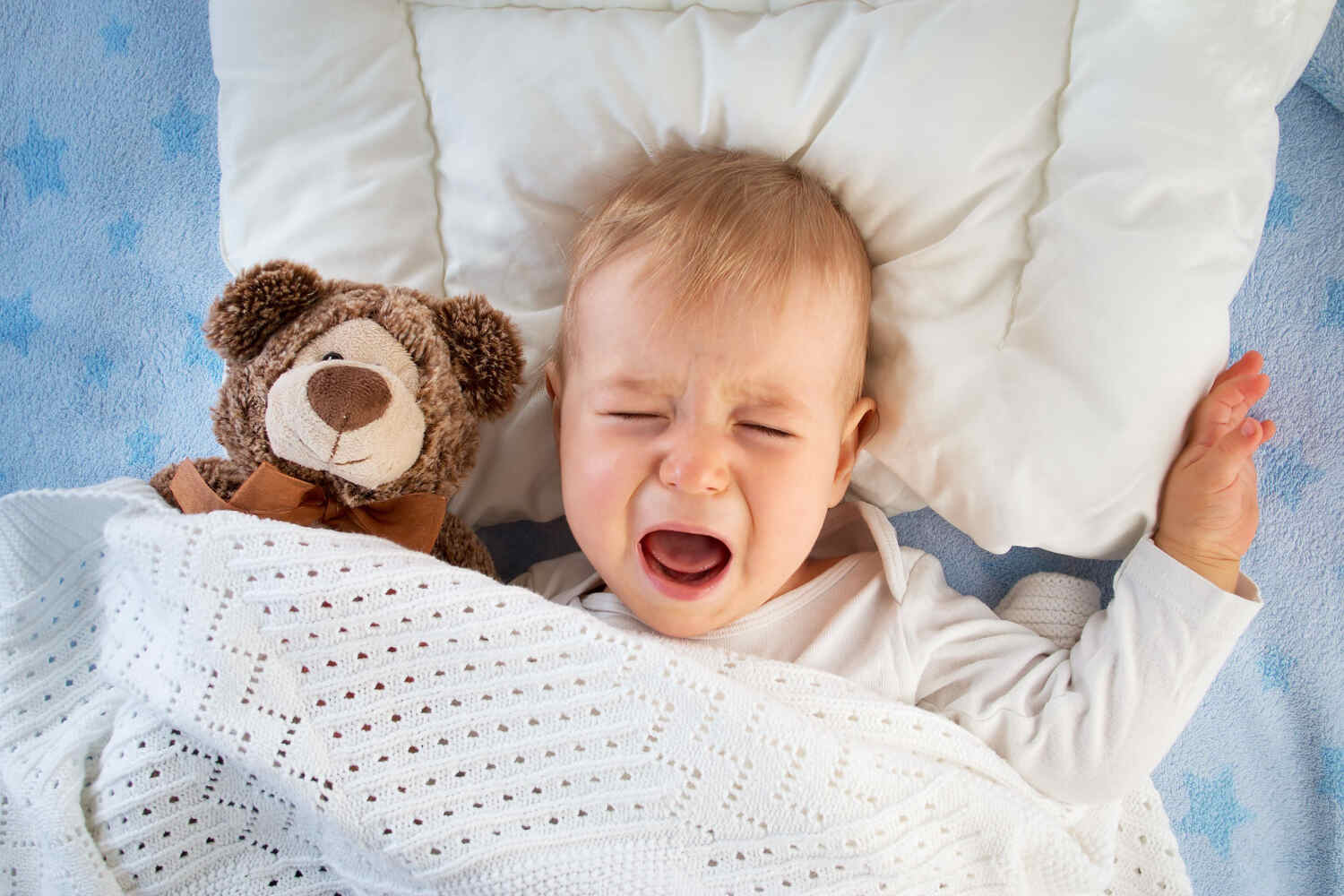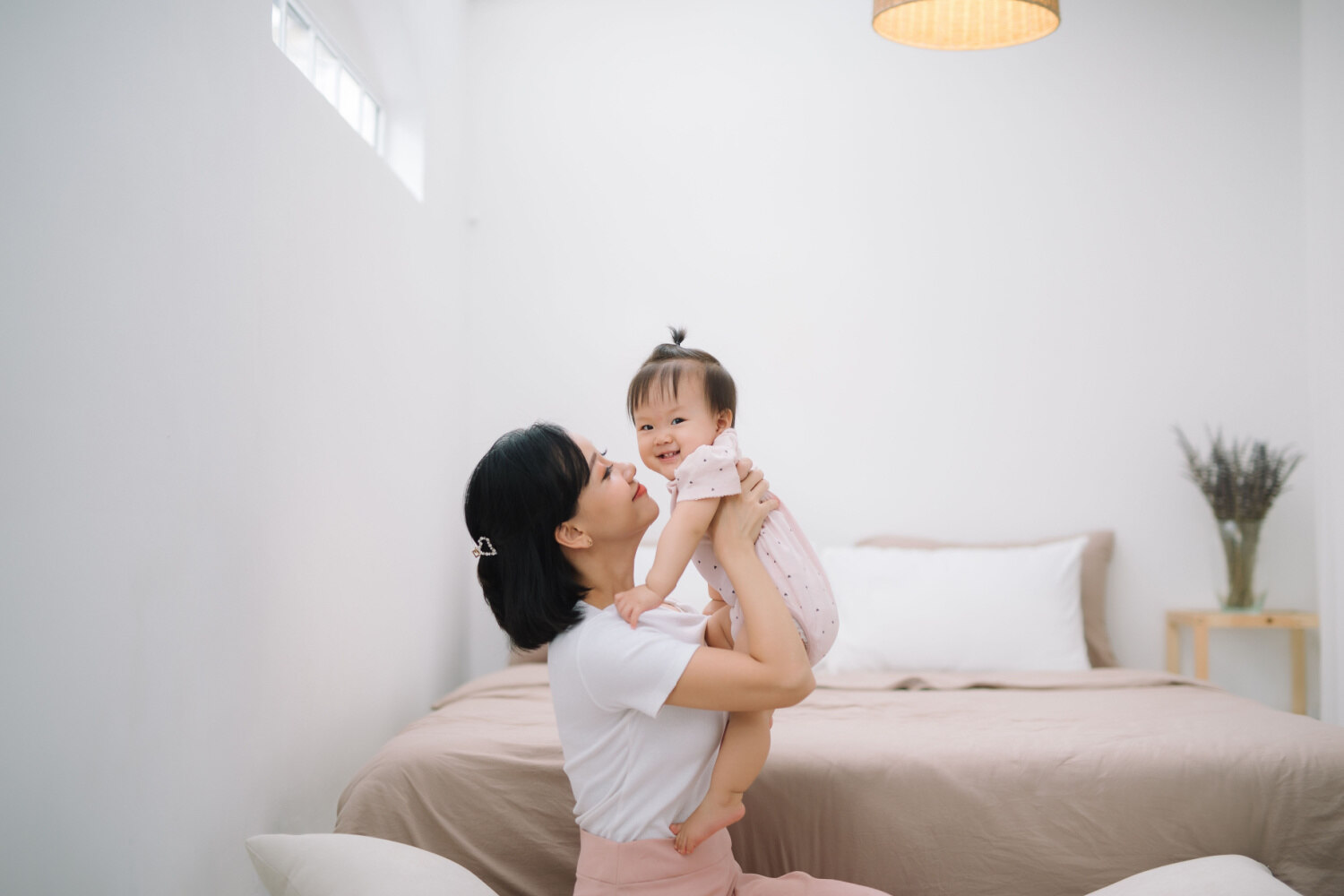
Surprised to see your babies bang their heads? It is true that babies often do it, leaving you to wonder about the cause. Babies bang their heads to soothe themselves, express any irritation or pain, or even get your attention. Head banging in babies is a sign of letting others know their discomfort or frustration. In babies, head banging frequently reflects an act of self-stimulation or self-comfort. You can catch your baby doing it on purpose or just for the sheer joy of it.
Your baby needs a lot of pampering, so give them what they obviously crave. Try to ease them through this stage until they grow out of it. Sometimes they do it for no reason at all. Often, you may notice that head banging is your baby’s favorite pastime and one of the things they have learned along their way through the developmental stages.
In This Article
- What Do You Mean By Head Banging In Babies?
- Is Head Banging In Babies Normal?
- Signs Of Head Banging In Babies
- When Does Head Banging in Babies Start?
- Causes Of Head Banging In Babies
- How Long Does Headbanging Last?
- Top 5 Tips To Deal With Baby Banging Their Head
- Is Head Banging A Sign Of A Health Problem?
- When To See A Doctor?
- FAQ’s
What Do You Mean By Head Banging In Babies?
A rhythmic banging of the head on any surface is referred to as head banging in babies. Babies rock themselves or bang their heads just to comfort themselves. One aspect of childrearing that is unexpected is the head-banging habit that babies cultivate. They repeatedly bang their heads on items you really cannot avoid, like the floor, crib, wall, and their hands.
Some babies bang their heads only while lying face down on their bed. Their heads bang while in an upright position too. Sometimes babies make noise or moan while they rock themselves and bang their heads. Parents feel saddened to witness this, though it is only temporary.
Is Head Banging In Babies Normal?

Yes, head banging is normal in babies. Babies deal with their development in many ways, and head banging is one of them. The rhythmical movement of head banging is soothing for babies, and it rocks them to sleep. To distract from teething pain or an ear infection, your baby resorts to head banging. This seems to keep their pain at bay. Normally, it is not a cause for concern unless, of course, they are hurting themselves in the process or getting their sleep disrupted.
Signs Of Head Banging In Babies
Here are some common signs of head banging in babies:
- Repeatedly bang their heads onto the mattress.
- Sitting up and banging the back of their heads mostly against their crib.
- Lying on their back, rolling their head from side to side.
- Rocking back and forth while they are on their knees and banging their heads as they rock forward.
- Hitting their head with their hand.
When Does Head Banging in Babies Start?
Towards the end of the first year, babies begin to bang their heads, and they do that more often between one and a half and two years of age. This comes to an end almost as soon as they are four years old.
Head banging usually happens when it is time for your baby’s nap or at sleep time during the night. Shortly after waking up or at some point during the day, your baby bangs their head. It is their way of communicating with you.
Causes Of Head Banging In Babies

There are a couple of explanations or possible causes of head banging in babies.
- Sleep-related disorder- Often, head banging occurs right before your baby falls asleep. It might seem painful, but, it is a way of winding down.
- Irregularities and developmental disorders- If symptoms like emotional outbursts and signs of delay in developmental stages are present, there may be other issues.
- Attention Seeking: Babies may bang their heads as a way of connecting with their parents or seeking their attention.
How Long Does Headbanging Last?
Head banging usually happens when it is time for your baby’s nap or at sleep time during the night. You may find them to keep at it for a few minutes or for almost an hour. Shortly after waking up or at some point during the day, your baby bangs their head. It is their way of communicating with you.
Sometimes an episode of head-banging can last up to fifteen minutes. These actions subside by the age of three or four and go away on their own.
Top 5 Tips To Deal With Baby Banging Their Head

Babies will soon outgrow the behavior of head banging, but you can adopt the following tips to alleviate their head banging.
- Give your attention Give your attention to them, but try not to fuss over your baby every time they do it.
- Protect them from injury If you find your baby banging their head against the crib, quickly move them to another place or move the crib away.
- Initiate a soothing bedtime routine Give your baby a warm bath or a gentle massage before their sleep time.
- Distract your child in other ways When you notice your baby loves rhythm or a steady beat, help them find other outlets to explore their love for a steady rhythm.
- Cease to worry Try not to worry when your baby gets a bruise or hurts themselves.
Is Head Banging A Sign Of A Health Problem?
Head banging is not a sign of a health problem, it is normal among infants and toddlers. When head banging is combined with any developmental delay then it could be a sign that your little one should be screened for Autism Spectrum disorder.
Sometimes this behaviour may indicate Neurological and Psychological concern. To differentiate such rhythmic movement disorder from issues related to development, you must observe when your baby’s head banging occurs and also the frequency.
When To See A Doctor?

To be on the safe side, it is best to mention to your doctor about your baby’s head banging. When you notice that your baby bangs their head many times during the day or continues the head banging even though they are hurting themselves, then you need to immediately reach for your doctor.
Notify your doctor if your baby’s behavior raises concern like
- When your baby injures themselves while banging their head
- When your baby rocks and bangs their head regularly during the day or waking hours
- When your baby does not get enough sleep due to their head-banging
- When you notice any signs of developmental delays.
Conclusion
Head banging in babies is a typically normal and appropriate developmental action, that clearly reveals that your baby is exploring or relating to the world. One aspect of child-rearing that may be unexpected, is the repeated head-banging of babies. Understanding why your baby is banging their head is the first step in the right direction. Patiently handling them, and pushing your anxiety to the back of your mind will help you breeze through this phase with babies.
FAQ’S
1. Is Head Banging A Form Of Autism?
No, headbanging is certainly not a form of autism. However, it is quite common to notice that head banging is normal among children with autism.
2. What Are The Complications Of Headbanging?
Headbanging is common and usually has no cause for worry. In some babies, it may be a part of a developmental problem.
